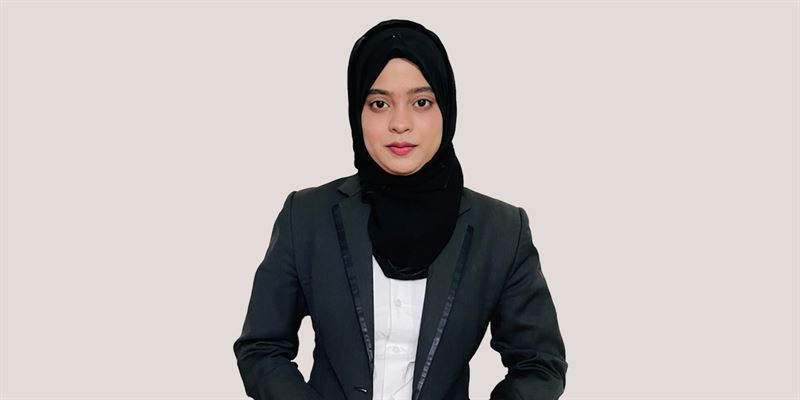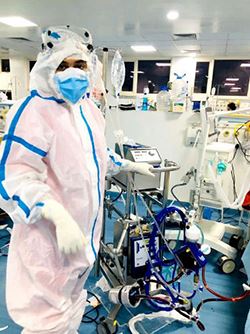Helping COVID-19 patients survive in a country under pressure
Health care staff in India are struggling as the country faces a brutal second wave of the pandemic. At a hospital in Kolkata, Getinge’s Iram Fathema finds herself in the eye of the storm, giving everything to help save more COVID-19 patients’ lives.

The desperation in India is growing. Looking at World Health Organization (WHO) COVID-19 dashboards, this is where the virus right now escalates the most. Health care staff are working around the clock while more and more patients seek care in a second wave that is hitting the country and its population hard. The right care competences are highly sought after.
Iram Fathema from Kolkata is usually working as a Clinical Specialist at Getinge, but given the challenging situation she is stepping into the wards to help treat the most critically ill COVID-19 patients.“I am a trained Perfusionist which means being responsible for operating extracorporeal circulation equipment during specific procedures where it is necessary to artificially support or temporarily replace the patient’s circulatory or respiratory function,” tells Iram.
In addition to a huge demand for advanced ventilators, COVID-19 has called for an increased need for Extracorporeal Membrane Oxygenation (ECMO), an approach that provides the body with oxygen when the lungs fail to perform this task.
“I operate Getinge’s ECMO devices that are designed to help keep critically ill patients alive while their damaged lungs get time to recover,” says Iram. “I know I am entering a dangerous environment in the hospitals right now and my family is worried for me. But I cannot focus on fear – I can only feel gratefulness to be given this extraordinary opportunity to be part of saving lives in a critical time.”
The situation at the hospitals right now is something Iram cannot find words enough to describe for someone who has not seen it.
“I have never experienced anything even close to this. The situation turned worse so quickly and all units are now filled with COVID-19 patients. It is a very severe situation and we are all exhausted but we keep on going to save more lives.”
Iram especially remembers the first COVID-19 patient she weaned off after ECMO.
“The patient was in such bad shape before we took care of him. When I got the call from the doctor a few days later, he thanked me and told me the patient was recovering well, it was a big relief for me.”
The workdays are long and the extreme situation calls for immediate action no matter what day of the week it is; COVID-19 doesn’t leave much time for health care staff to rest.
“Although the situation is terrible and we are struggling I am happy to be part of it. It feels good that my knowledge makes a difference and at the same time I am learning a lot myself. I hope the world will change for the better soon, and until then I will provide as much help as I possibly can.”
This information is intended for an audience outside of the United States.
